Publications
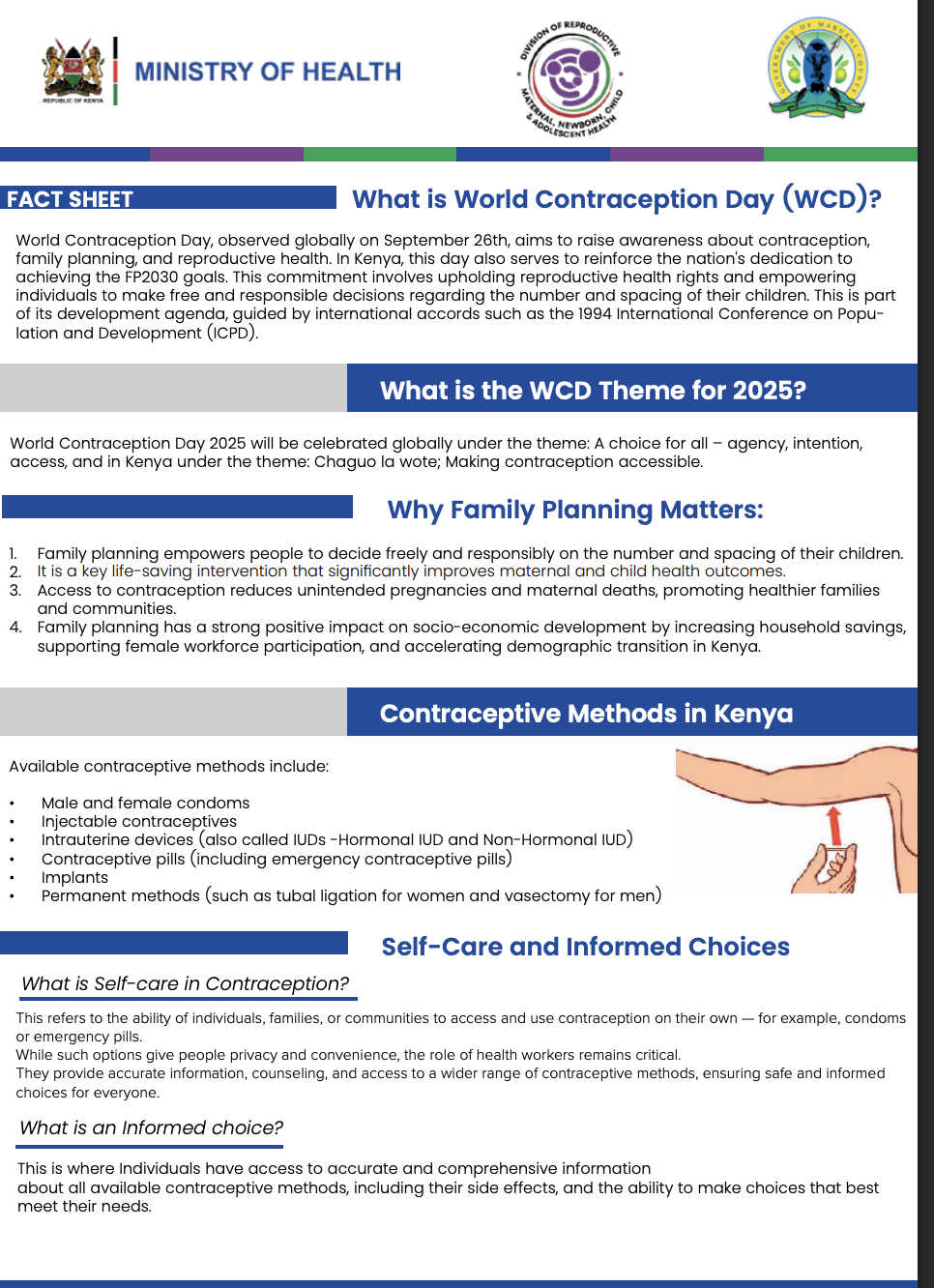
This factsheet provides a concise overview of World Contraception Day 2025 and Kenya’s continued commitment to expanding access to family planning. It highlights why contraception matters for health and development, outlines the range of modern methods available, and explains key concepts such as self-care and informed choice. The factsheet also presents essential data from the Kenya Demographic and Health Survey, including trends in contraceptive use, sources of services, and unmet need. By summarising Kenya’s FP2030 targets and the role of different stakeholders, this factsheet aims to promote understanding, informed decision-making, and stronger support for reproductive health across the country.

Learning Together to Advance Evidence and Equity in Policymaking (LEEPS) is a multi-country initiative led by the African Institute for Development Policy (AFIDEP) that strengthens the use of evidence and equity in policymaking across Africa. The project enhances institutional and individual capacities in evidence-informed policymaking (EIP), integrates gender equity into policy processes, and nurtures networks for learning and collaboration. In its first phase (2023–2025), LEEPS focuses on reproductive health and clean energy in Kenya and Nigeria, with plans to expand across the continent. Read the brochure for details:
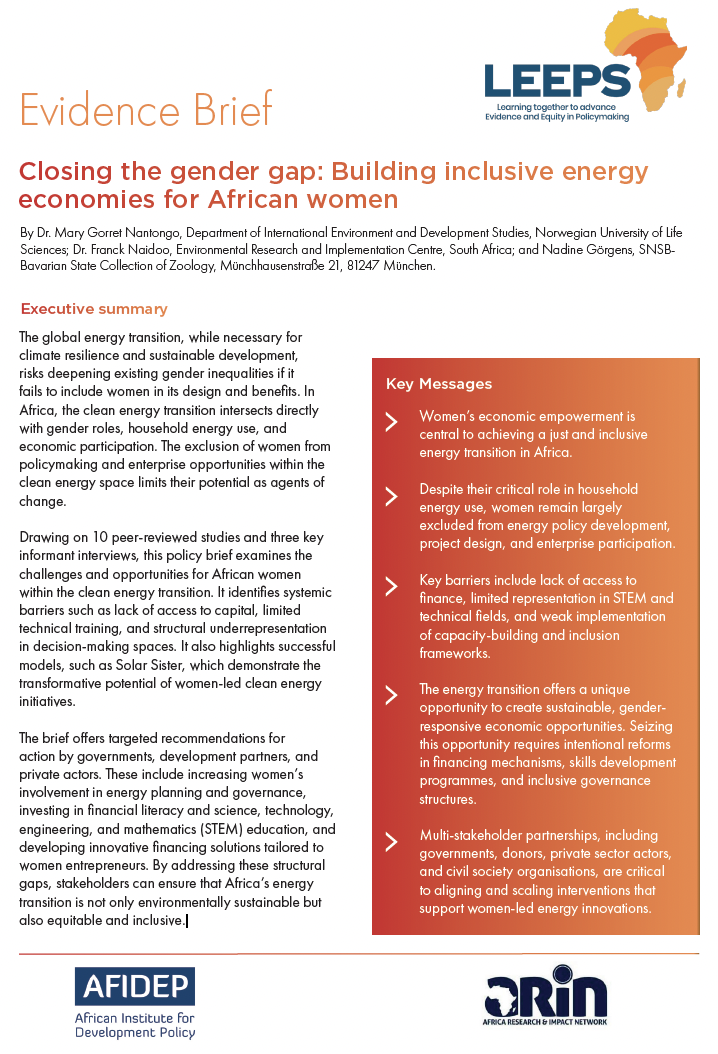
The global clean energy transition is essential for climate resilience but risks worsening gender inequality if women are excluded from its design and benefits. In Africa, women’s limited access to capital, technical training, and decision-making opportunities hinders their participation in the energy sector. A review of studies and interviews highlights both these challenges and successful models like Solar Sister, which show the impact of women-led initiatives. The brief recommends increasing women’s roles in energy governance, investing in financial and Science, Technology, Engineering, and Mathematics (STEM) education, and creating tailored financing for women entrepreneurs to ensure an equitable and inclusive energy […]
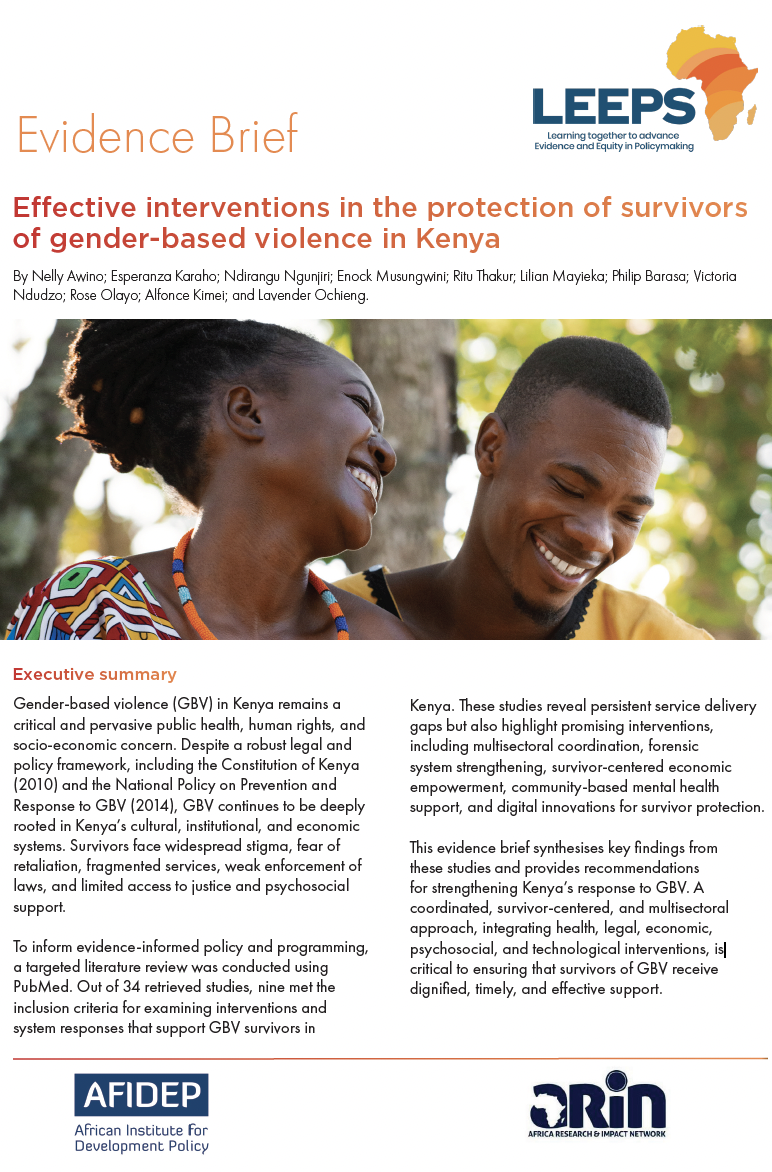
Gender-based violence (GBV) remains a serious public health, human rights, and socio-economic issue in Kenya despite strong legal and policy frameworks. Survivors continue to face stigma, fear, weak law enforcement, and limited access to justice and support services. A targeted literature review of 34 studies (with 9 meeting inclusion criteria) found persistent service gaps but also identified promising interventions such as multi-sectoral coordination, stronger forensic systems, survivor centered economic empowerment, community-based mental health support, and digital tools for protection. The evidence brief calls for a coordinated, survivor centered, and multi-sectoral approach that integrates health, legal, economic, psychosocial, and technological responses […]
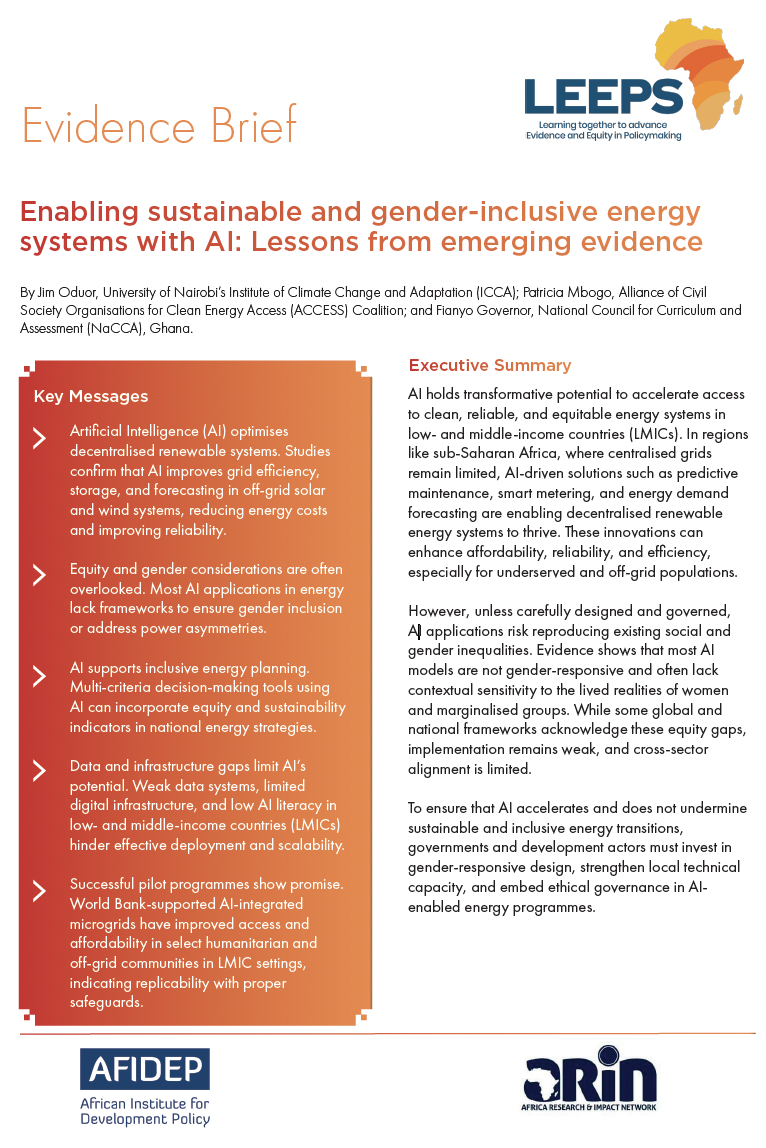
AI has the potential to transform energy access in low- and middle-income countries by improving affordability, reliability, and efficiency through innovations like predictive maintenance, smart metering, and energy forecasting. These tools support decentralised renewable energy systems, especially in off-grid areas. However, without inclusive design and governance, AI risks reinforcing existing gender and social inequalities. To ensure equitable energy transitions, governments and development partners must prioritise gender-responsive design, build local technical capacity, and establish strong ethical governance frameworks. Read more:
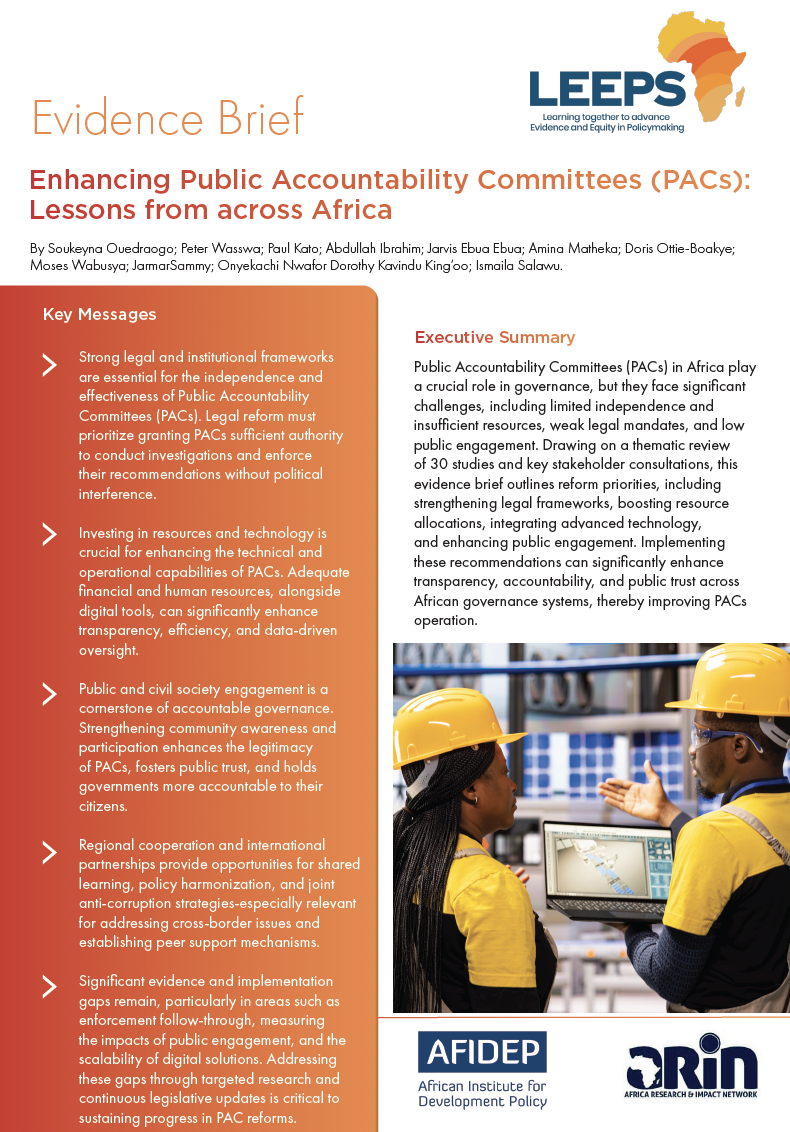
Public Accountability Committees (PACs) in Africa play a crucial role in governance, but they face significant challenges, including limited independence and insufficient resources, weak legal mandates, and low public engagement. Drawing on a thematic review of 30 studies and key stakeholder consultations, this evidence brief outlines reform priorities, including strengthening legal frameworks, boosting resource allocations, integrating advanced technology, and enhancing public engagement. Implementing these recommendations can significantly enhance transparency, accountability, and public trust across African governance systems, thereby improving PACs operation. Read more:
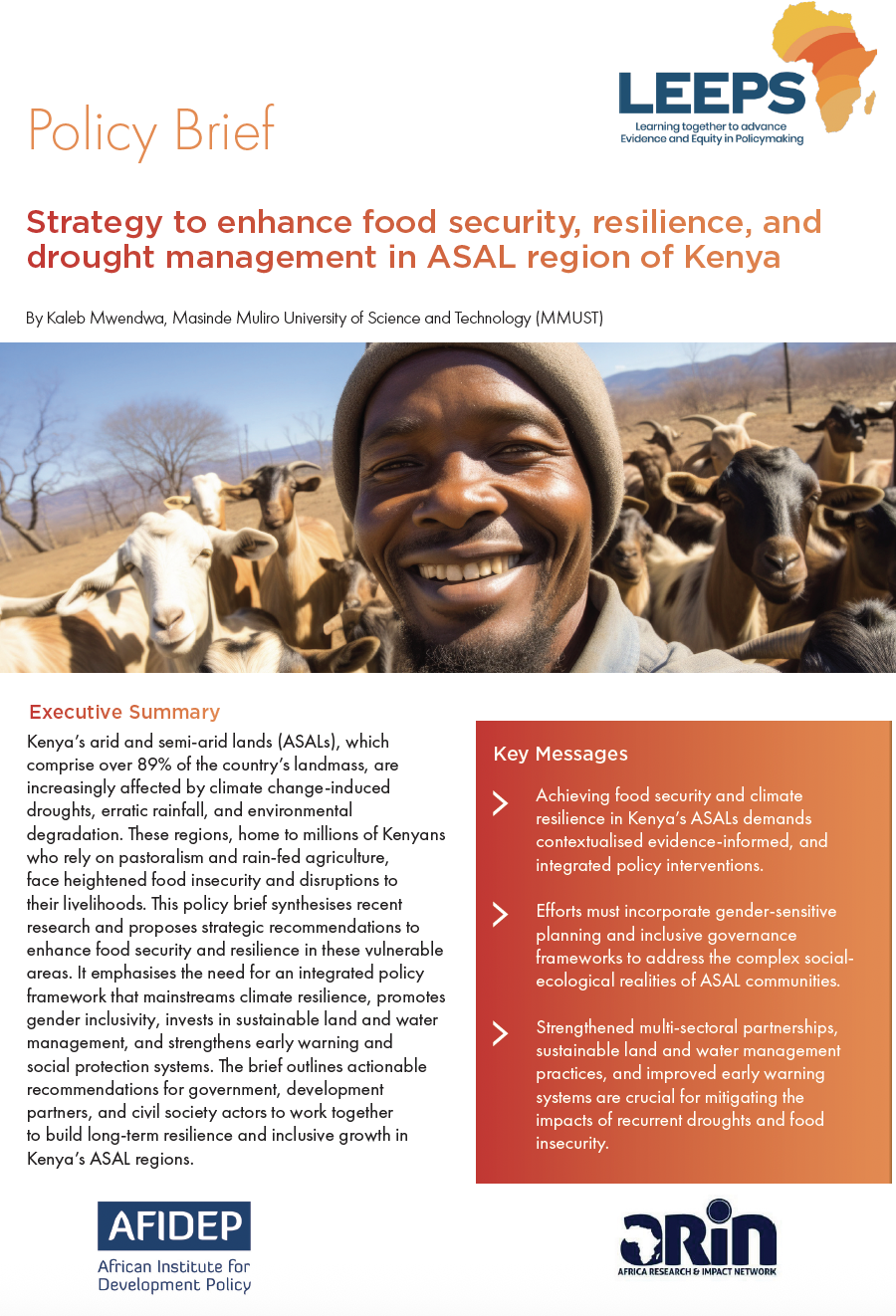
Kenya’s arid and semi-arid lands (ASALs), which comprise over 89% of the country’s landmass, are increasingly affected by climate change-induced droughts, erratic rainfall, and environmental degradation. These regions, home to millions of Kenyans who rely on pastoralism and rain-fed agriculture, face heightened food insecurity and disruptions to their livelihoods. This policy brief synthesises recent research and proposes strategic recommendations to enhance food security and resilience in these vulnerable areas. It emphasises the need for an integrated policy framework that mainstreams climate resilience, promotes gender inclusivity, invests in sustainable land and water management, and strengthens early warning and social protection systems. […]
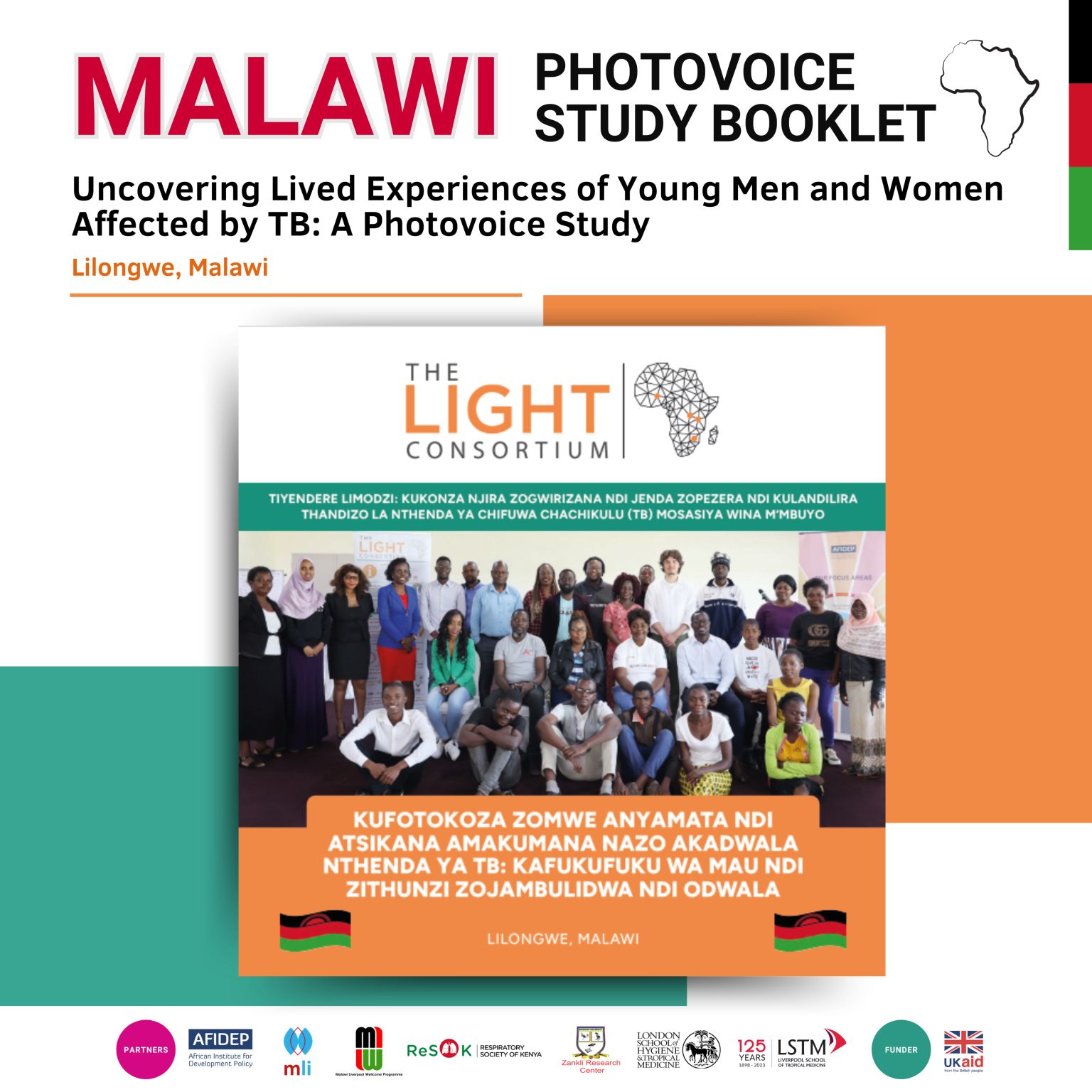
*”Kufotokoza zomwe anyamata ndi atsikana amakumana nazo akadwala nthenda ya TB”* *“Uncovering lived experiences of young men and women affected by TB”* This latest booklet by The LIGHT Consortium demonstrates the lived experiences of young women and men in Malawi impacted by tuberculosis (TB). Young people impacted by tuberculosis (TB) documented the physical, emotional, economic, and social challenges of TB using the innovative Photovoice approach. The photos they took and stories they shared – from poor health and economic struggles to personal resilience and hope – underscore the urgency of responsive and inclusive TB programmes for young people. Young women and […]

In 2023, tuberculosis (TB) remained a major global health threat, affecting over 10 million people and causing 1.5 million deaths, with adolescents and young adults (15–24 years) in low- and middle-income countries, including Malawi, facing significant but often overlooked burdens. Despite a decline in TB incidence in Malawi, urban youth—especially young men—continue to experience high rates of infection and detection gaps, compounded by limited age- and gender-specific interventions. A participatory study using photovoice methodology in Lilongwe revealed the complex physical, economic, and psychological challenges young people face, including stigma, discrimination, and unmet societal expectations. The research emphasized the resilience of […]

The Youth Futures Policy Research Project is a three-year initiative (2024–2027) implemented by the African Institute for Development Policy (AFIDEP) in partnership with the CAP Youth Empowerment Institute (CAP-YEI). The project seeks to generate actionable evidence on how policies, regulations, and industrial strategies can be activated to create dignified and fulfilling work for Africa’s youth. It responds to the continent’s growing youth unemployment crisis—driven by structural economic barriers, technological disruptions, and skills mismatches—by exploring how political interests, institutional arrangements, and regulatory frameworks shape labour market outcomes. Using a participatory action research design and political economy analysis, the project operates in […]

The workshop on health co-benefits of climate mitigation provided important insights from experts in climate change and health on effective and ineffective ways of communicating health co-benefits of mitigation actions in Sub-Saharan Africa. The workshop also provided clear and practical pathways to a healthy, low-carbon future for the African context, giving an eye-opening view on which pathways could be more appropriate, practical and effective in climate mitigation in Africa. These insights will inform future work of the Pathfinder Initiative on capacity strengthening and could be useful for policy and programme implementation on climate mitigation interventions and communication in Africa if […]
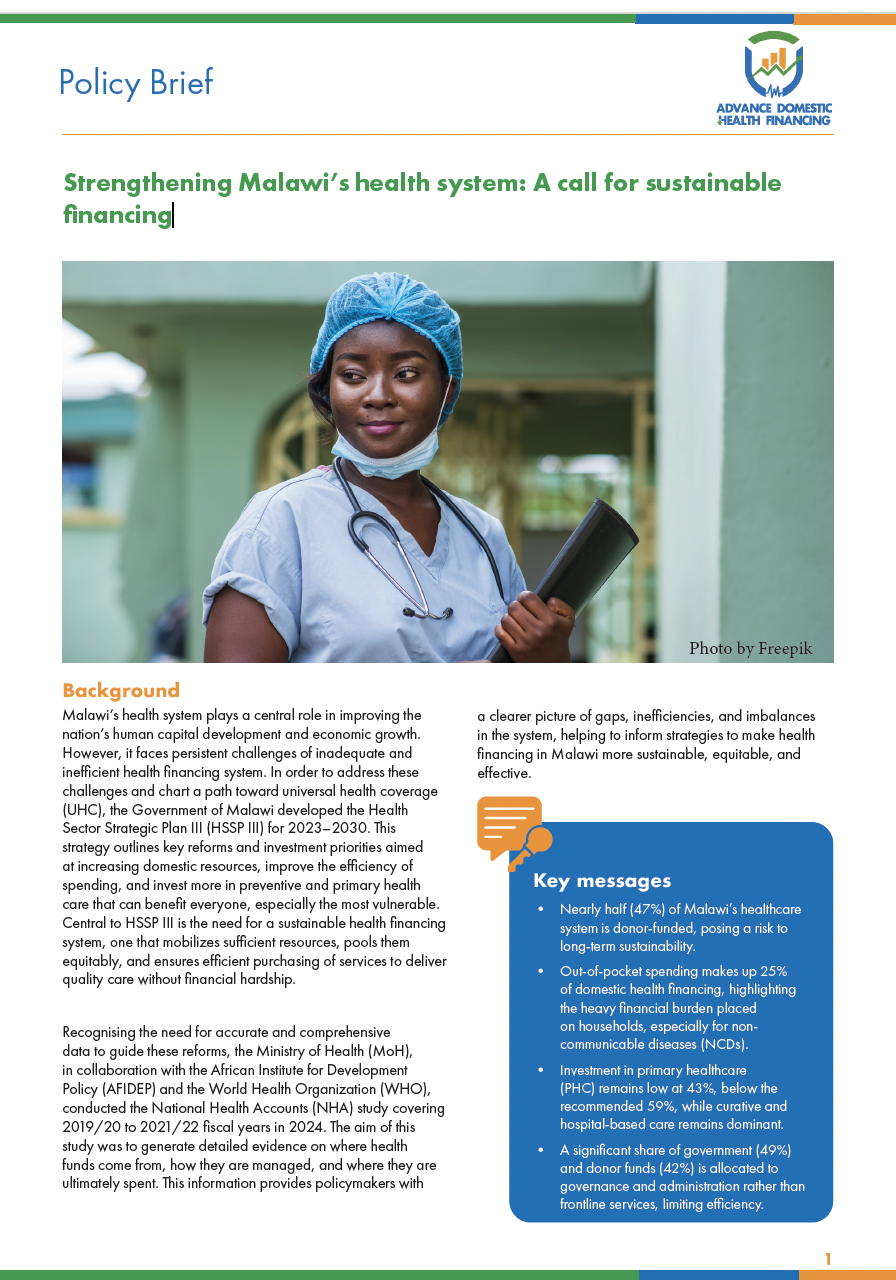
Malawi’s health system is vital for human development and economic growth but faces persistent financing challenges. To advance universal health coverage, the Government developed the Health Sector Strategic Plan III (2023–2030), which focuses on mobilizing domestic resources, improving spending efficiency, and strengthening preventive and primary care through a sustainable financing system. To inform these reforms, the Ministry of Health, with AFIDEP and WHO, conducted a National Health Accounts study (2019/20–2021/22) that provides evidence on funding sources, management, and expenditure, helping policymakers address gaps and improve equity and sustainability in health financing. Read the policy brief:

